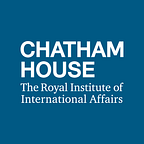Five Things You May Have Missed In the US and Americas This Week
Paul Manafort begins his trial, wildfires rage in California and the White House condemns violence in Nicaragua. Here’s what you may have missed in the US and the Americas this week.
(1) California wildfires raise fears of a ‘new normal’ in the state.
As dozens of wildfires raged throughout California, Governor Jerry Brown warned that such destruction may become the ‘new normal’ due to changing weather patterns. Brown emphasized that sufficient funds were available this year to combat the wildfires, but also warned that a future economic downturn — combined with the likelihood of worsening fire conditions — could stretch the state’s finances. California exhausted roughly one quarter of its annual firefighting budget in July alone.
The Carr Fire in Northern California — the seventh most destructive in state history — has proven especially difficult for firefighters to contain. It has claimed six lives and destroyed over one thousand homes. The Carr Fire is one of eighteen currently burning in the state (at the time of writing). University of California-Merced professor Anthony Westerling warned that the fire-inducing effects of climate change ‘will probably accelerate.’
(2) White House condemns violence in Nicaragua, revokes visas of officials.
The Trump administration issued a strongly-worded statement Monday denouncing the ‘state-sanctioned violence perpetrated by police and parapolice forces’ in Nicaragua. It also moved to revoke the visas of Nicaraguan officials who the White House identifies as being responsible for the violence in the country. These developments are in addition to the sanctions placed on three top Nicaraguan officials last month for human rights abuses and corruption. The White House warned that this was ‘a start, not an end’ of sanctions on the country’s leaders.
Violence in Nicaragua has intensified since government forces cracked down on small-scale protest on 18 April. Clashes have since escalated between pro-government forces and protestors. Nicaragua’s President Daniel Ortega has refused to step down amid wide-scale calls for him to do so, and the death count has now surpassed 300.
(3) US Department of Defense creates ‘do not buy’ list of foreign software.
In an effort to stymie hacking by Russia and China, the US Department of Defense created a ‘do not buy’ list of software with code originating from the two countries. Ellen Lord, the under secretary of defense for acquisition and sustainment, said it was ‘quite difficult at first glance’ to tell exactly where some code originated, but that the department would work closely with intelligence agencies to safeguard US defence interests.
The announcement follows fears of ‘supply chain cyberattacks’ — in which hackers exploit a weak point in the creation of software to target the end user, rather than targeting the user directly. The US National Counterintelligence and Security Center warned of such risks in a report published last month.
(4) Venezuela’s opposition leader flees, facing police threats.
The Venezuelan opposition leader José Manuel Olivares fled to Colombia late last week. He published a letter on Twitter citing intimidation tactics by secret police. He said that ‘we were not prepared for this neither politically, financially or emotionally’ and that ‘my family’s wellbeing comes first.’
Olivares is the latest in a string of self-imposed exiles by prominent opposition figures in Venezuela. President Nicolás Maduro has strengthened his grip on power, winning another six-year term in May’s election that international observers have condemned as fraudulent. Venezuela has been plagued by economic crises and violence — the IMF has reported that inflation will top one million per cent and Caracas has been gripped by deadly protests — but Maduro has successfully sidelined the opposition to stay in power.
(5) Manafort trial begins in first court case of Mueller probe.
Paul Manafort, former campaign chairman of President Donald Trump, began his trial for felony charges of tax fraud, bank fraud and conspiracy on Tuesday. A jury pool of 65 was narrowed down to twelve — six men and six women — before the trial began. Prosecutors highlighted Manafort’s lavish lifestyle to argue that he used the purchase of luxury goods to hide income from tax authorities.
Manafort worked in Washington for decades as a lobbyist for foreign governments, often with dismal human rights records. Manafort’s trial stems from work he conducted for former pro-Russian Ukrainian president Viktor Yanukovych in recent years. Although the trial comes as part of Robert Mueller’s investigation into Russian meddling in the 2016 election, prosecutors have said that they will not bring up questions of collusion between Russia and the Trump campaign.
